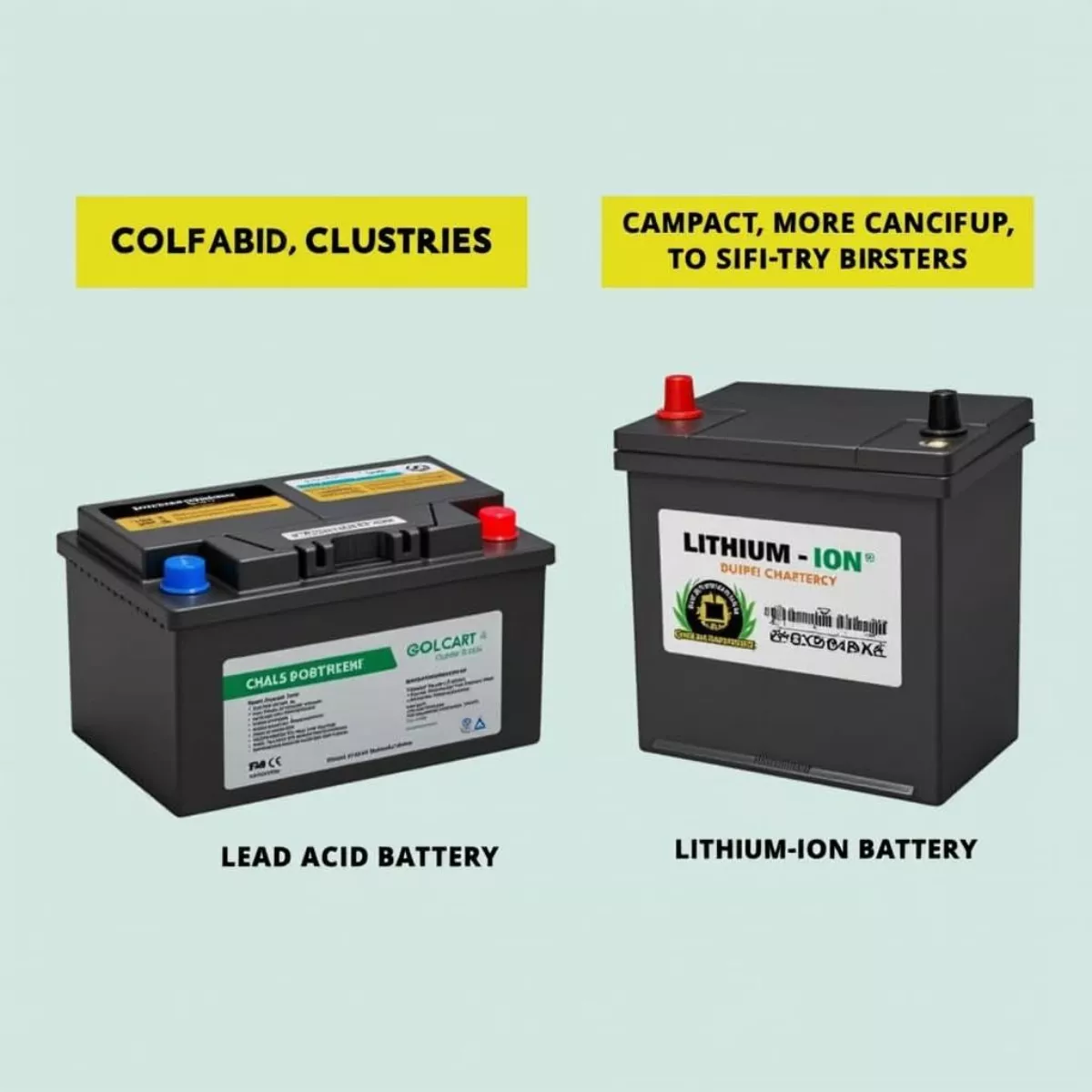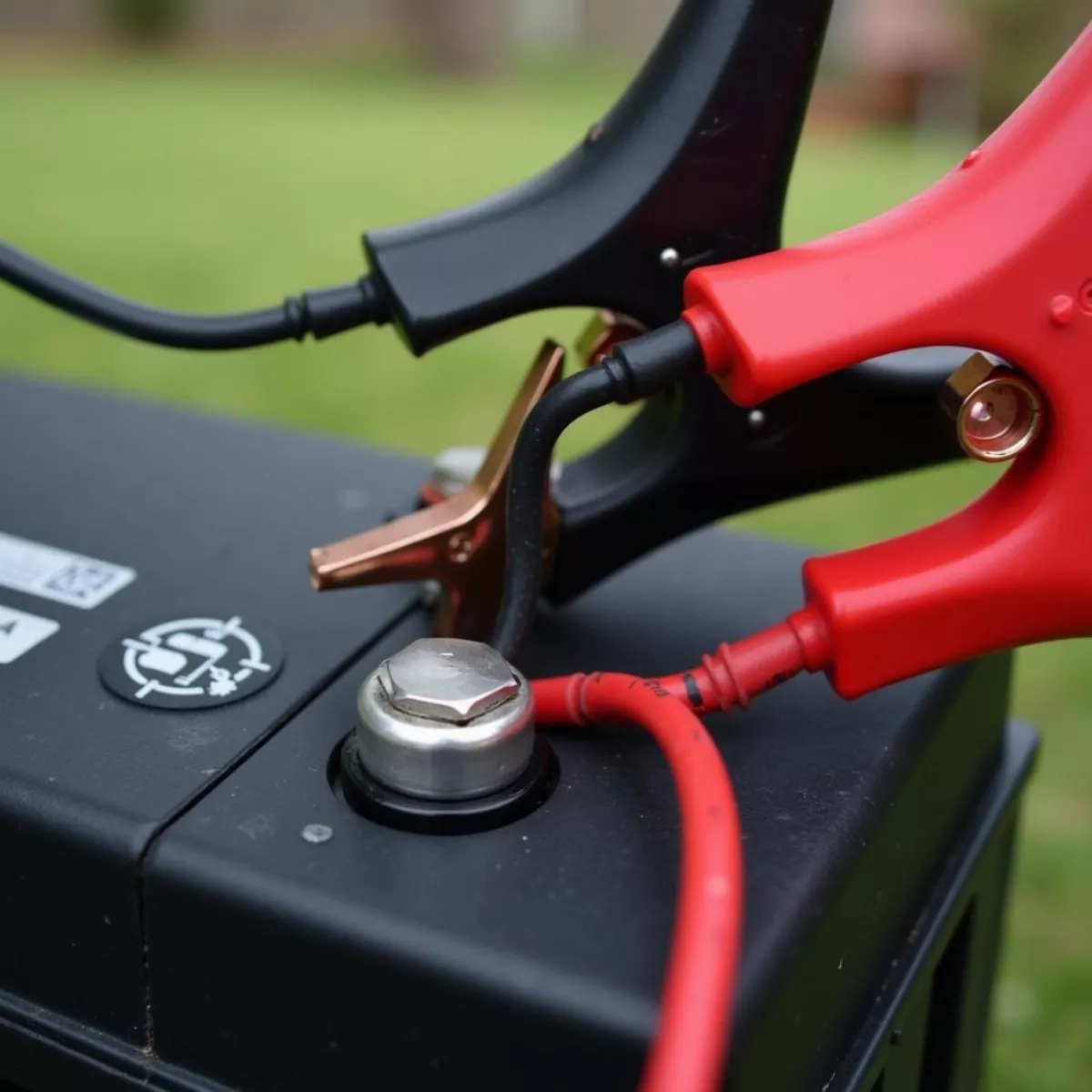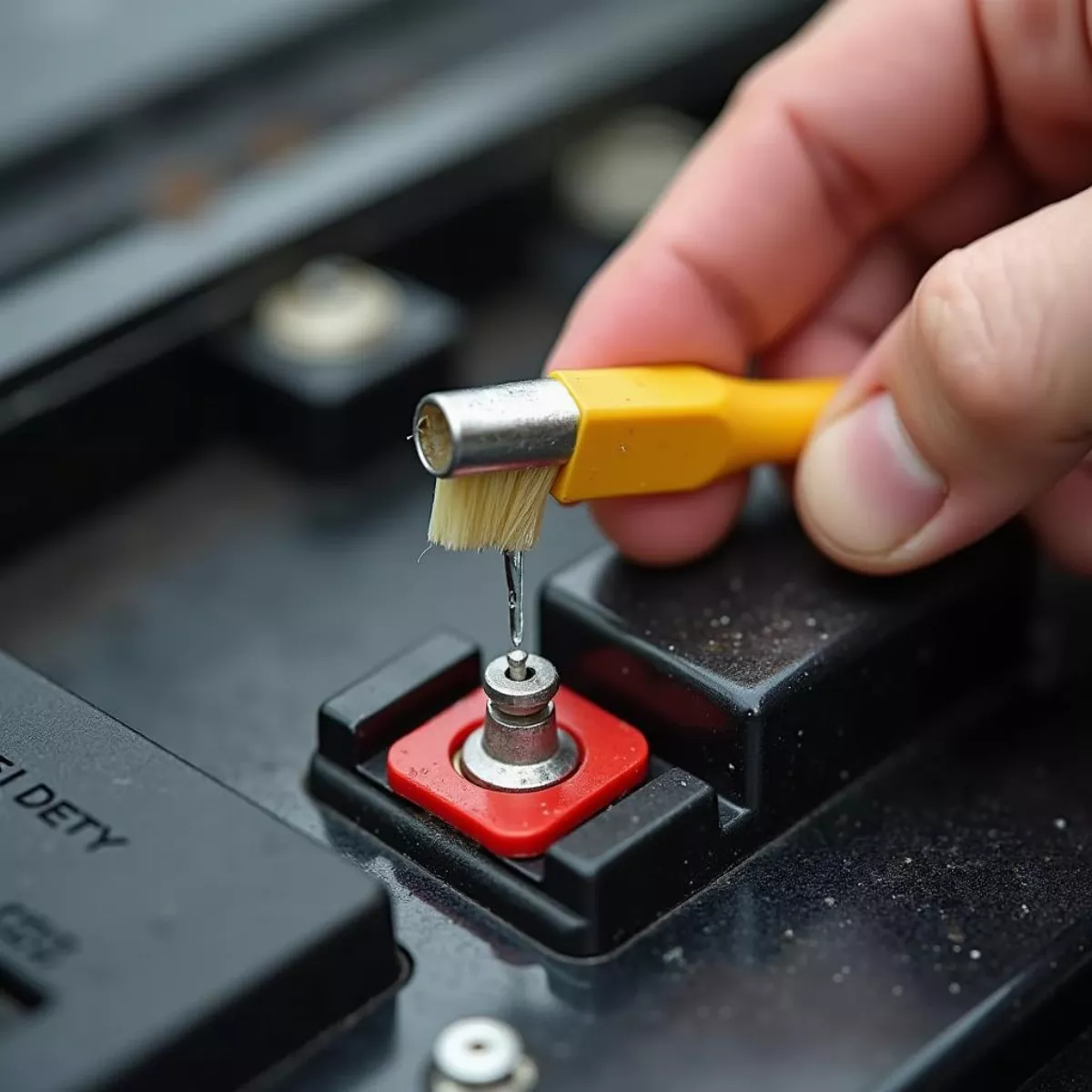When you’re enjoying a sunny day on the golf course or cruising through your neighborhood, the last thing you want is for your E-Z-Go golf cart to run out of battery. Knowing how to properly charge your golf cart not only extends its battery life but also ensures you get the most use out of it. This guide provides you with comprehensive charging instructions that’ll keep your cart running smoothly.
Understanding Your Golf Cart’s Battery
First things first, let’s get familiar with what you’re dealing with when it comes to your E-Z-Go golf cart’s battery. Most E-Z-Go models come equipped with either lead-acid batteries or lithium-ion batteries.
Battery Types
| Battery Type | Pros | Cons |
|---|---|---|
| Lead-Acid | – Affordable – Widely available |
– Heavier – Requires regular maintenance |
| Lithium-Ion | – Lightweight – Longer lifespan |
– More expensive upfront costs |
 E-Z-Go Golf Cart Battery Types
E-Z-Go Golf Cart Battery Types
Key Reminder: Always refer to your owner’s manual for specific battery guidelines and warranty information!
Step-by-Step Charging Instructions
Now, let’s delve into the step-by-step instructions for charging your E-Z-Go golf cart.
1. Gather Your Equipment
Before starting, ensure you have the following handy:
- A compatible charger for your E-Z-Go model
- Access to a proper power outlet
- Safety goggles (recommended for lead-acid battery maintenance)
2. Park the Golf Cart in a Suitable Location
- Flat Surface: Ensure the cart is parked on a flat, stable surface.
- Ventilated Area: Place it in an area with good airflow, especially for lead-acid batteries to prevent gas buildup.
3. Turn Off the Golf Cart
Important: Always turn off your golf cart before connecting or disconnecting the charger.
4. Connect the Charger
For Lead-Acid Batteries
- Open the battery compartment.
- First, connect the positive (red) cable from the charger to the positive terminal of the battery.
- Then, attach the negative (black) cable to the negative terminal of the battery.
For Lithium-Ion Batteries
- Simply connect the charger to the charging port located on the cart.
- Ensure that the charger is compatible with lithium-ion batteries.
 Connecting E-Z-Go Golf Cart Charger
Connecting E-Z-Go Golf Cart Charger
5. Plug in the Charger
- Connect the charger to an electrical outlet.
- Switch on the charger if it has a power button.
6. Monitor Charging Status
- Most chargers will have a light indicator.
- Generally, you want to charge your lead-acid batteries until the charger shows a steady green light (usually around 8-10 hours).
- For lithium-ion batteries, charging times are typically shorter (2-6 hours). Always refer to the user manual for specifics.
7. Unplug the Charger
- Once charged, first unplug the charger from the power outlet.
- Disconnect the cables from the battery in reverse order (negative, then positive for lead-acid).
8. Secure Battery Compartment
- Close and secure your battery compartment.
- Store the charger in a cool, dry place.
Tips for Maintaining Battery Life
- Charge Regularly: Even if you haven’t used the cart, charge it every couple of weeks.
- Avoid Deep Discharges: Never let your battery drop below 20%.
- Clean Terminals: Ensure battery terminals are free of corrosion. A mixture of baking soda and water can help.
- Temperature Matters: Don’t charge or store batteries in extreme temperatures.
 Cleaning E-Z-Go Golf Cart Battery Terminals
Cleaning E-Z-Go Golf Cart Battery Terminals
Signs Your Battery Might Need Replacement
Keep an eye out for these warnings that might indicate it’s time for a new battery:
- Reduced speed
- Shortened runtime
- Swelling of the battery case
- Leaking or corrosion
Key Takeaways
- Understand your battery: Know whether you have lead-acid or lithium-ion batteries!
- Charge properly: Always follow the step-by-step charging instructions outlined above.
- Monitor charging: Keep an eye on indicators for optimal performance.
- Maintain your battery: Regular maintenance can significantly prolong the lifespan of your golf cart battery.
Frequently Asked Questions (FAQ)
1. How often should I charge my E-Z-Go golf cart battery?
Ideally, charge it after every use. If you don’t use it often, charge it every couple of weeks.
2. Can I leave my golf cart plugged in all the time?
It’s best to unplug the charger once the battery is fully charged to prevent overcharging.
3. What do I do if my golf cart won’t charge?
Check the charger and cables for any damage or loose connections. If everything seems fine, it may be time to check the battery.
4. Is it safe to charge my E-Z-Go golf cart indoors?
Yes, as long as it’s in a well-ventilated area to avoid gas buildup, especially with lead-acid batteries.
5. How long will a fully charged golf cart battery last?
A fully charged battery can last anywhere from 30 to 40 miles, depending on the terrain and usage.
6. Can I use any charger for my E-Z-Go golf cart?
No, always use a charger specifically designed for your E-Z-Go model and type of battery.
7. What should I do if my battery gets wet?
Dry it off immediately and charge it once you’ve ensured there’s no water in contact with any electrical connections.
8. Can I upgrade my lead-acid battery to lithium-ion?
Yes, but it may require modifications to your golf cart. Consult with a professional.
9. What is the expected lifespan of a golf cart battery?
Lead-acid batteries last around 4-6 years while lithium-ion can last 10 years or more with proper care.
10. Should I keep my battery fully charged all the time?
While it’s essential to charge regularly, avoid keeping it fully charged all the time to extend lifespan; a 20%-80% charge is optimal.
With these E-Z-Go golf cart charging instructions and tips, you’re sure to keep your cart running smoothly while maximizing battery lifespan. Enjoy those sunny days cruising without a worry in the world!

